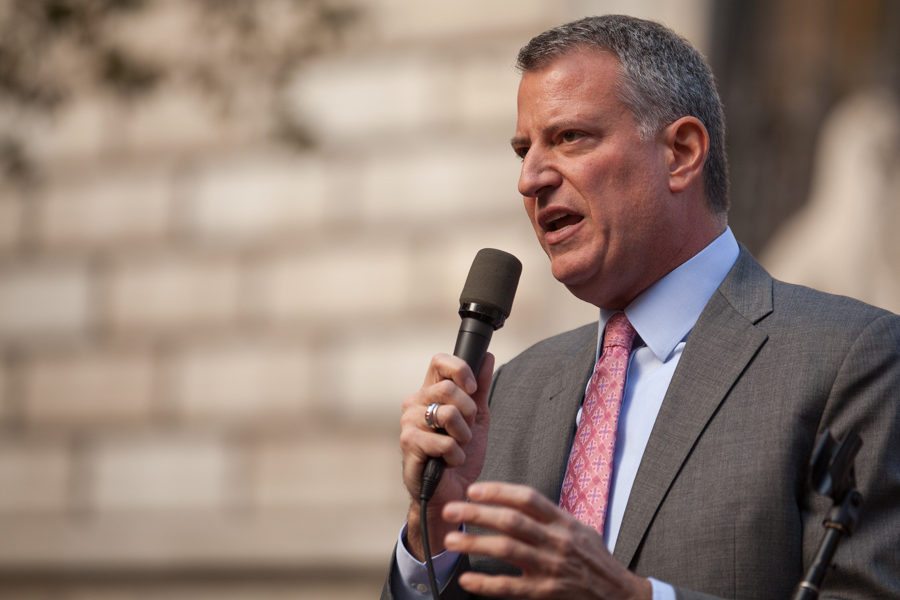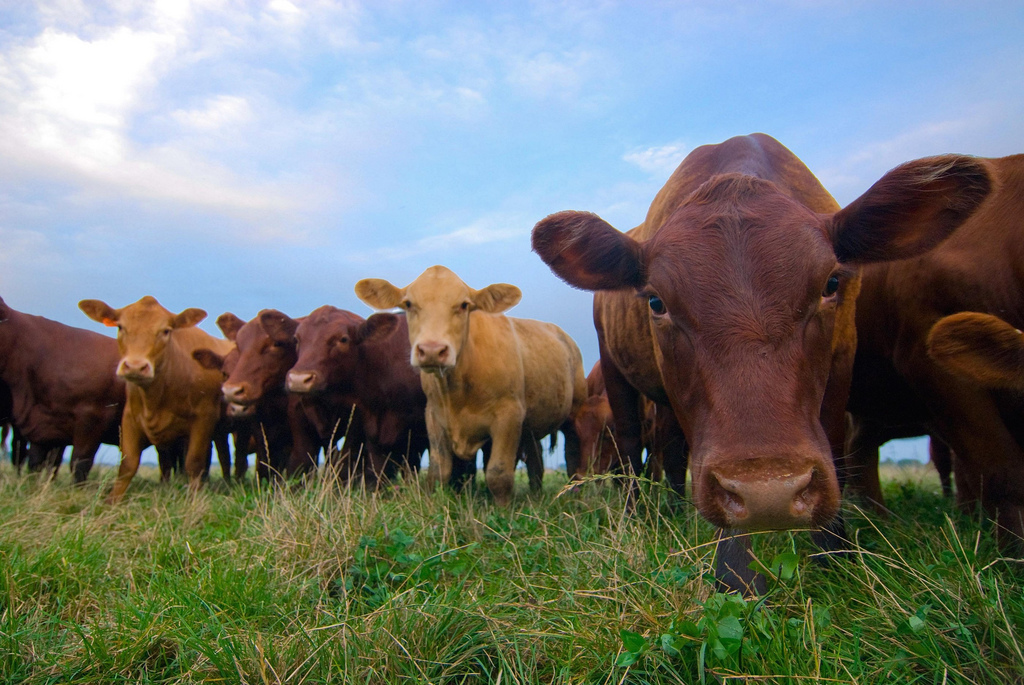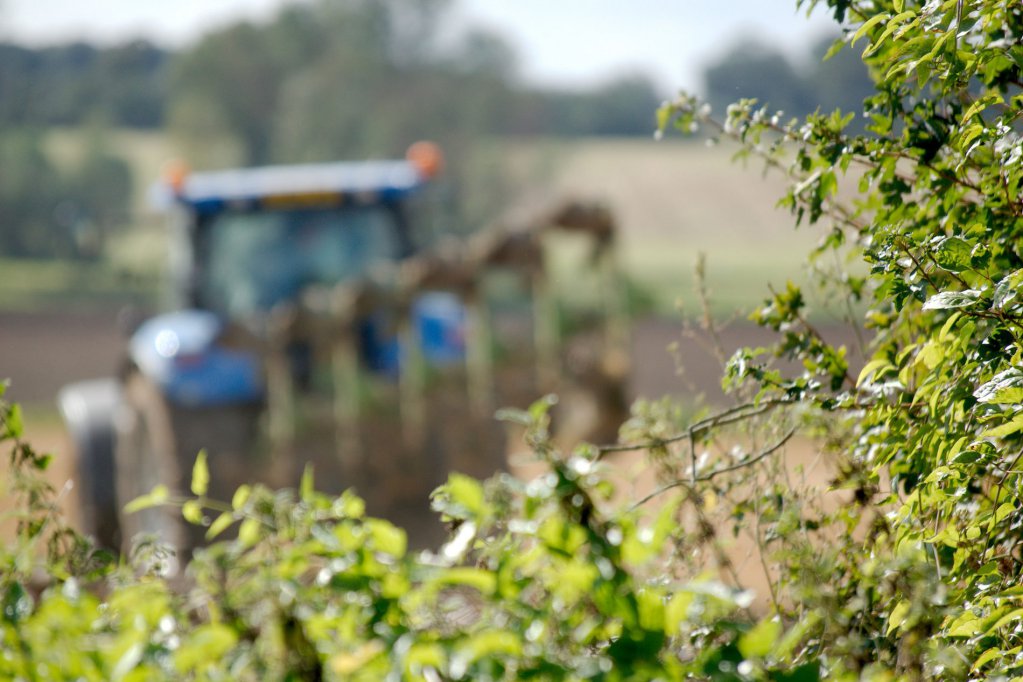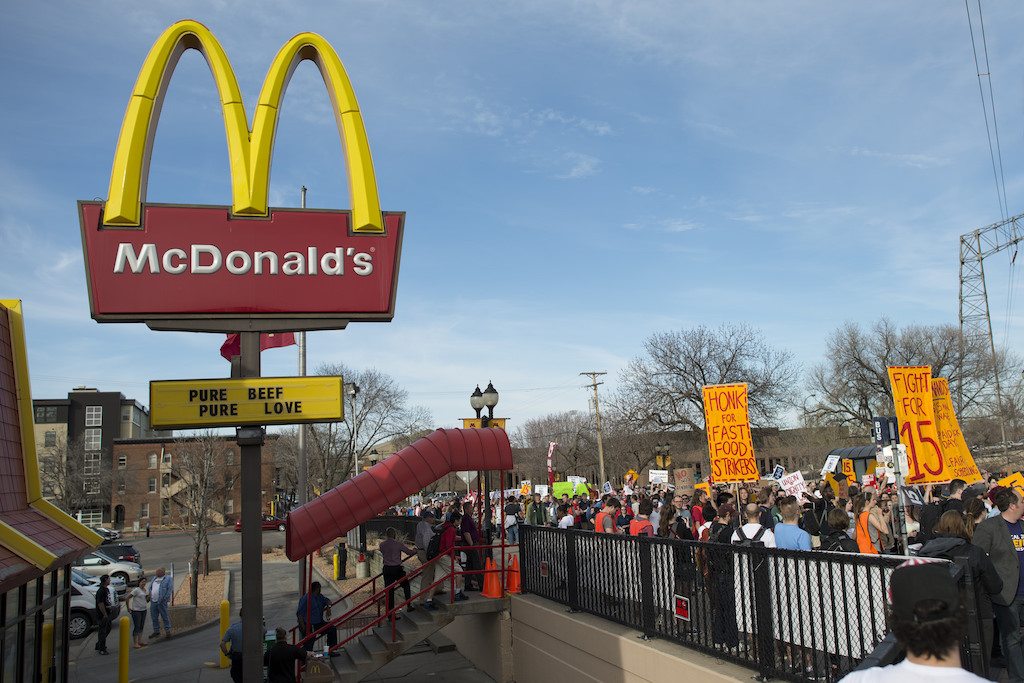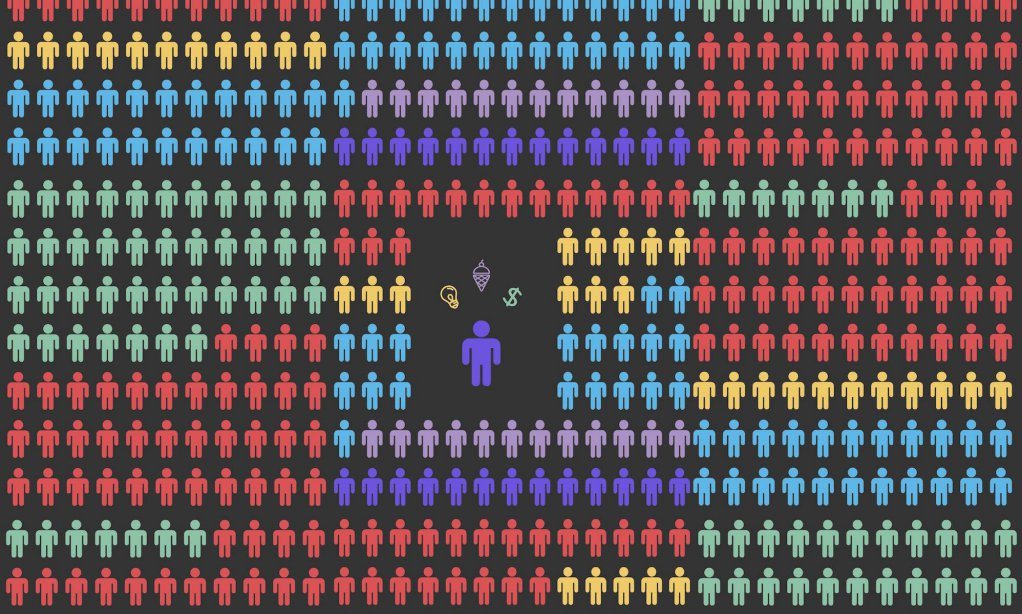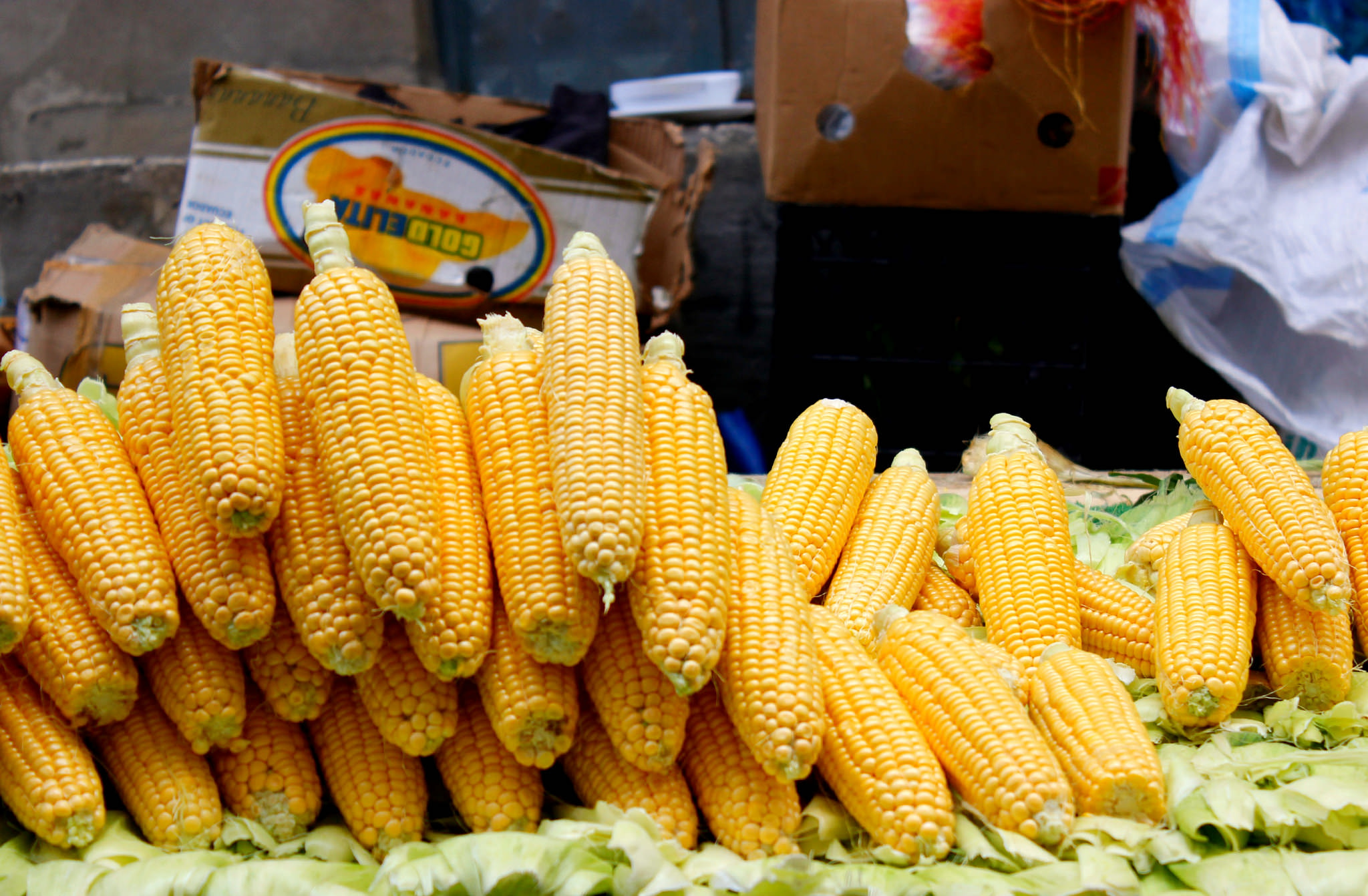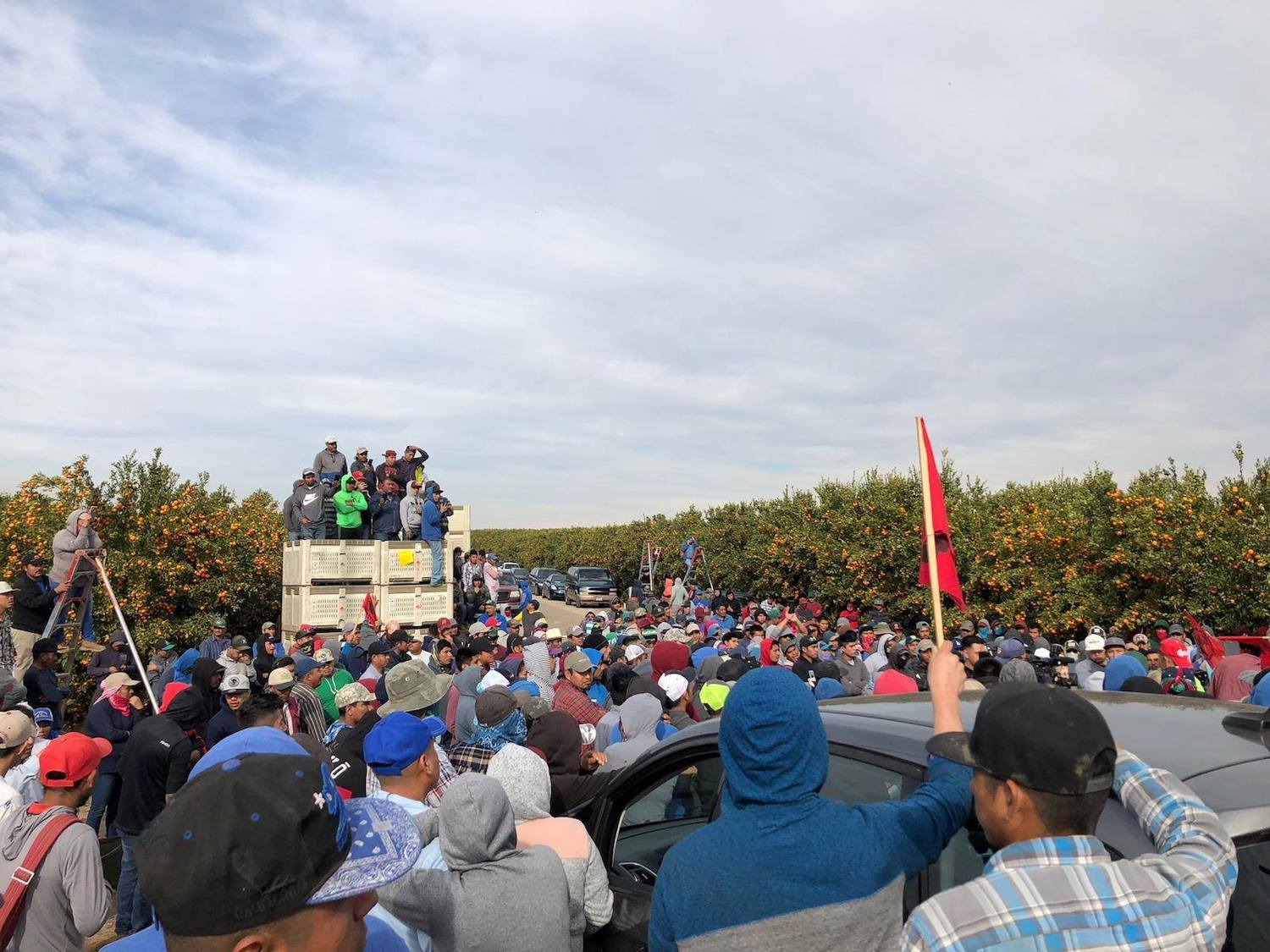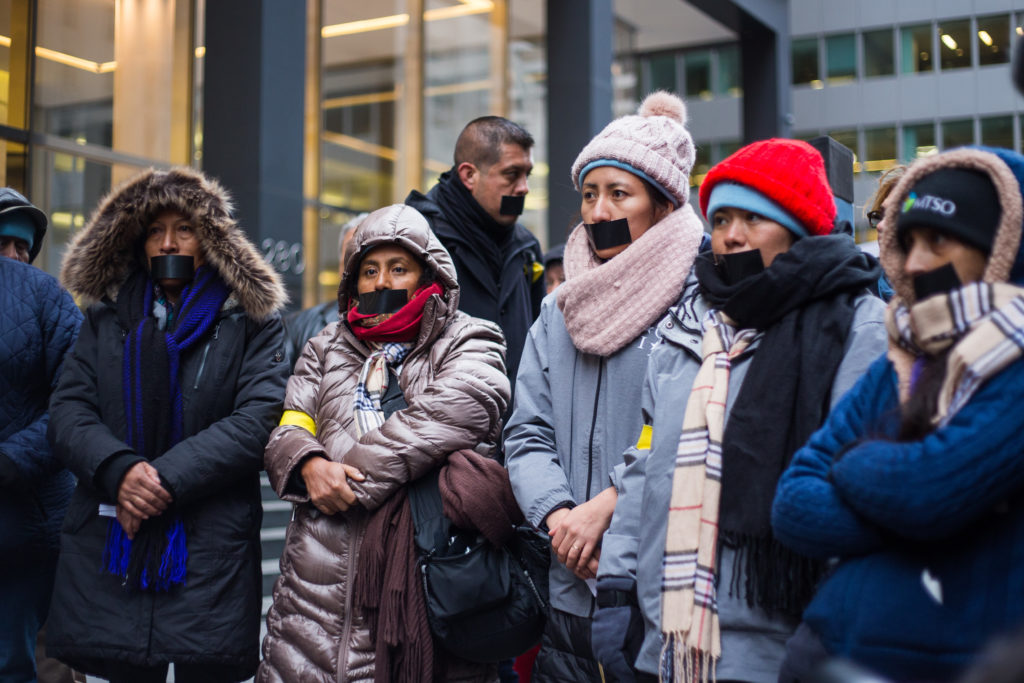
Kate Kelly
Last week, we reported from outside 280 Park Avenue in midtown Manhattan—a somewhat cold and glittering setting, not at all evocative of the warm Florida tomato fields where the farmworkers we had arrived to talk to typically spend their days.
But midtown Manhattan, and 208 Park Avenue in particular, plays host to the office of Nelson Peltz, the non-executive chairman of the board of the fast-food chain, Wendy’s. We may have been there to talk to the farmworkers, but they were there very much there to talk to him.
Though, “talk” isn’t quite accurate. The Coalition for Immokalee Workers (CIW), together with the Alliance for Fair Food, a nationwide network of advocates for farmworker justice, were in New York City for a five-day fast in protest of the chain. Wendy’s has long held out on joining the Fair Food Program, a program launched in 2011 that has been successful in securing a penny more per pound of the tomatoes they sell to 14 other large food retailers, including Walmart and Taco Bell.
The message from roughly 70 farmworkers: “Time’s up, Wendy’s.”
You could be forgiven for thinking that message is too close to the unprecedented amount of public discourse and reconciliation around sexual violence after the #MeToo movement began in October of 2017. But it’s important to know that for more than two decades, these activists have been working to secure never-before-seen rights in the fields. We’re talking about shade and water; the right to file a complaint without fear of retaliation; the first real wage increase in 30 years, and perhaps most critically: the right to work free of sexual harassment and modern slavery.
Below is a chronicle in pictures of their fight.
 Kate Kelly
Kate Kelly Maria Lopez, a member of the Coalition of Immokalee Workers (CIW). She wears a yellow armband that signals she is participating in the fast
 Kate Kelly
Kate Kelly Nely Rodriguez, a CIW staff member, was on site with one of her three children in tow
 Kate Kelly
Kate Kelly Reverend Michael Livingston, executive minister at New York City’s Riverside Church, holds flyers for distribution that read, “Time’s up Wendy’s: 100,000 people supporting the Freedom Fast to end sexual violence in the fields”
 Kate Kelly
Kate Kelly Ximena Pedroza, a student at New College of Florida, also fasted in April of last year as a part of the rolling nationwide student fast
 Kate Kelly
Kate Kelly A protester stands with their back to the street in front of 280 Park Avenue, the offices of Nelson Peltz, a non-executive chairman of the board of Wendy’s with a sign designed to look like a barrel of tomatoes and reads in “nuevo dia,” which translates to “new day”
 Kate Kelly
Kate Kelly Martha Herrera is a member of Migrant Justice, the Vermont-based human rights organization expanding on the Fair Food Program’s worker-driven social responsibility model through their Milk with Dignity Program in the Vermont dairy industry
 Kate Kelly
Kate Kelly The fast for freedom protestors walk down Fifth Avenue to the Wendy’s location at Union Square in Manhattan. A papier-mâché farmworker woman holds a barrel of tomatoes

